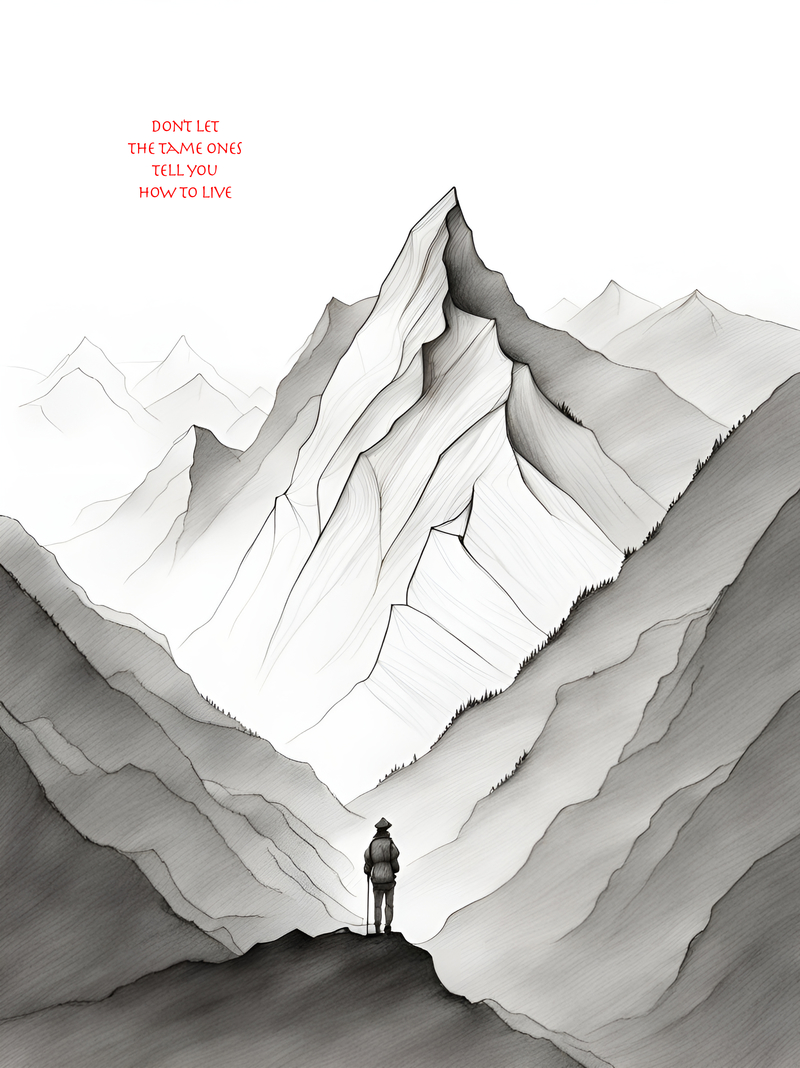“We all have a bag. We all pack differently. Some of us are traveling light. Some of us are secret hoarders who’ve never parted with a memory in our lives. I think we are all called to figure out how to carry our bag to the best of our ability, how to unpack it, and how to face the mess. I think part of growing up is learning how to sit down on the floor with all your things and figuring out what to take with you and what to leave behind.”
Hannah Brencher
Beyond the Quote (301/365)
Part of me loves this idea. Just sit down on the floor, unpack all of the memories, feelings, and experiences and figure out what to take and what to leave behind. Sounds great, doesn’t it? We could all just pack up our bags with all of the good and take all of the “bad” to the curb and part with it forever. But, as great as it sounds, the other part of me knows that it isn’t that easy.
The way I see it, our memories, feelings, and experiences aren’t so much “items” that are in the “bag” of our minds as they are plants that have been rooted in the soil of our minds. I think removing a bad memory is less like removing a shirt from your suitcase and more like trying to uproot a tree. It’s complicated and increasingly difficult the longer the tree has been planted. Items in a bag never get harder to remove—they are always just as easy to take out or put in.
When we are born, our minds are incredibly fertile grounds that allow just about any seed that is planted to grow. As we undergo experiences, seeds get planted and start to grow roots depending on how often they are watered or how often the experience is repeated. Some of the more intense experiences are more deeply planted in the garden of our minds and therefore, have access to the more fertile soil. Superficial experiences tend to get planted more in the forefront of our minds and only have access to the more basic soil. The key in this analogy is in how this plays out over the course of time.
The seeds that get planted deeply in the mind and are revisited and watered frequently, will grow into something amounting to a large tree. The seeds in the forefront will amount to something more along the lines of a small plant. Now, as you sit down to take inventory of all of your past memories, feelings, and experiences, the picture will start to look much different than it did when you were unpacking your suitcase.
Now, you have to figure out how to uproot trees that are no longer serving you and are, quite possibly, causing you pain. And you have to figure out how to better treat the plants that are only growing superficially—or how to get them planted into the more rich, fertile areas of your mind. This makes things a little more complicated, but, in my opinion, also a little more clear. And clarity is key to moving forward.
So, how to manage this scene once you’ve taken inventory? Well, the way I see it is you can try to cut the trees down, but the roots will always be there—I don’t think it’s possible to eliminate a tree in its entirety. Or, you can take away the resources the tree would need to continue surviving. Either of these options might happen through personal development work, reflective writing, gratitude journaling, therapy, counseling, conscious and deliberate mental reframing, etc.
Furthermore, what also might help is to focus the majority of your time and energy into growing the new rather than just figuring out how to remove the old. Sometimes, when you focus so much on trying to remove the negative, you end up just watering the negative without even realizing it. Sometimes, the better approach is to focus more exclusively on watering the positive and growing new memories, feelings, and experiences which, as a result, will naturally take your attention away from what was negative anyway. It has a double-positive effect.
This is true for the relationships in your life, too. Rather than trying to figure out how to “cut” a person from your life, or “remove” a negative influence, or move on from a breakup—focus on how you might build new relationships, add more time with better influences, and grow alongside someone new instead.
Of course, with this analogy comes good news and bad news. The bad news is that this means it isn’t going to be easy. Uprooting a tree is a much more challenging process than taking an item out of your bag. The good news is that now you know. The first step to improving the garden of your mind is to, well, become aware that there’s a garden there that needs to be tended to. And the garden of your mind is one of the most needy, high-maintenance gardens you will ever confront in your life. But, once you get it established and put in the necessary initial work, the maintaining won’t be all that bad. Heck, you might even start to enjoy it.
In a Tweet:
Read Next: 19 Powerful Positive Thinking Quotes and How To Best Apply It To Your Life
NEW In The Shop: Don’t Let The Tame Ones Tell You How To Live [Poster]
Why We ♥ It: Some of the best advice I (Matt here) ever got was: don’t take life advice from people who aren’t living a life you want to live and don’t take criticism from people you wouldn’t go to for advice. I created this poster to act as a reminder to listen more closely to our role models and less closely to our critics, trolls, and tamed-comfort-zone-hugger acquaintances. It’s also a perfect gift for the outdoor adventurer, travel enthusiast, or solo explorer (or soon to be). Available in print or digital download. 👇🏼
...Want to advertise your book, product, or service? Send inquiries to matt@movemequotes.com.

Written by Matt Hogan
Founder of MoveMe Quotes. On a mission to help busy people do inner work—for better mental health; for healing; for personal growth. Find me on Twitter / IG / Medium. I also share daily insights here. 🌱
It has taken me 1,000’s of hours to build this free library for you. If it has helped you, you can support my continued effort here. ☕️
